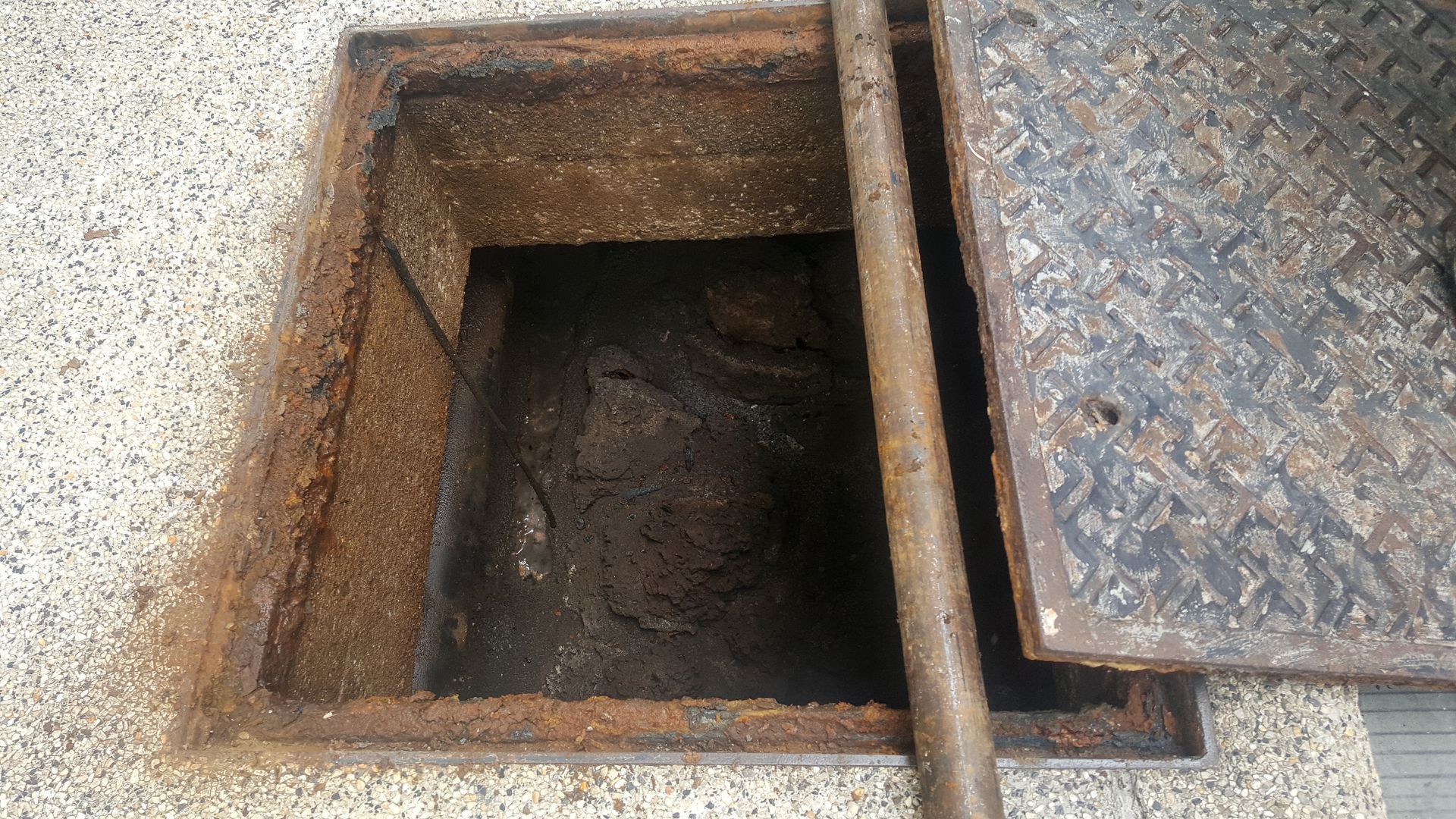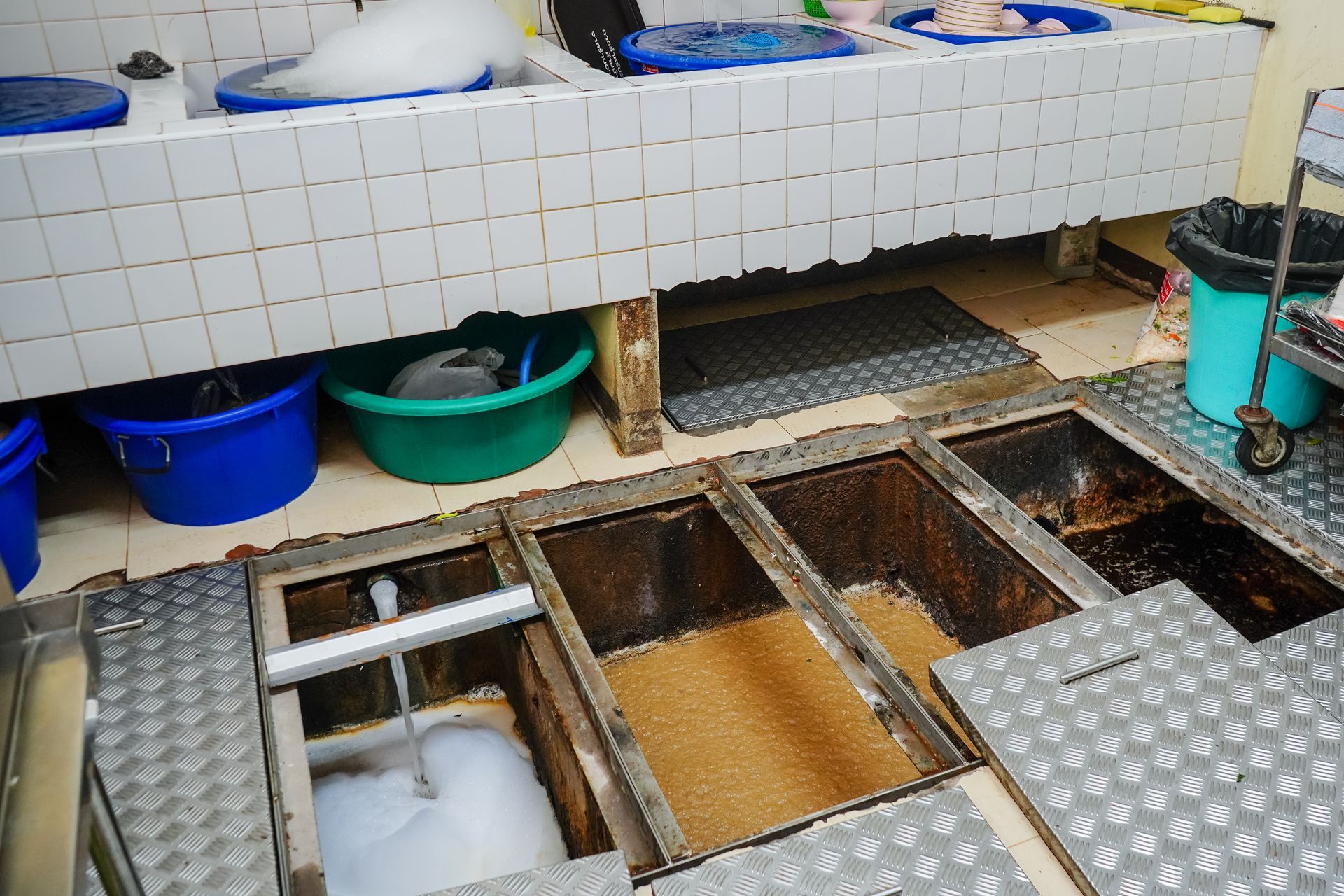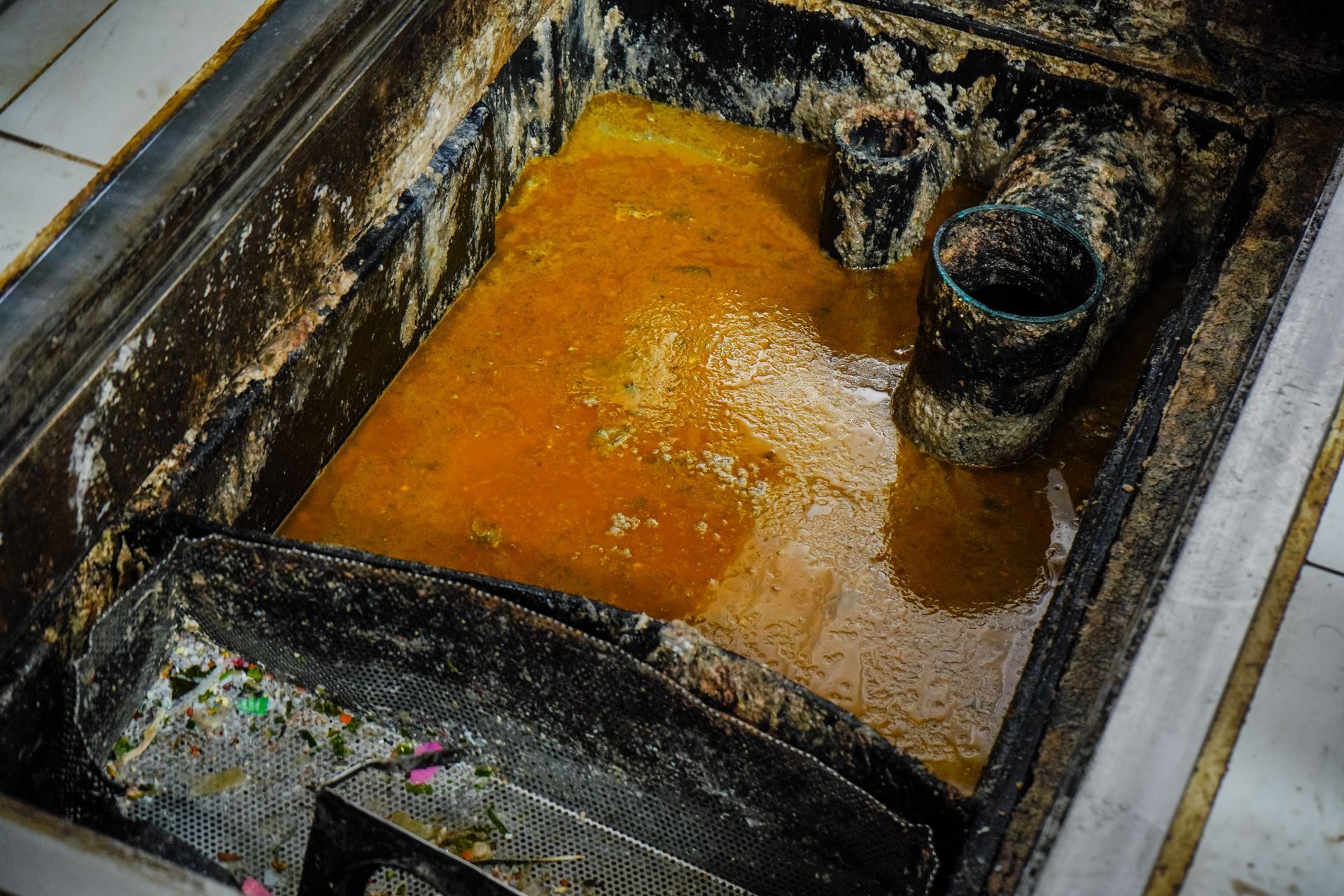Will Business Insurance Cover FOG-Related Damage?

The damage from grease trap failures and FOG-related backups can be disruptive, expensive and depending on the severity, trigger business interruption or third-party claims.
Many food service operators expect their insurance to cover the costs—but FOG-related claims are often denied. The outcome depends on how the policy is written, what endorsements are included and whether the event is classified as sudden or preventable.
What Can Go Wrong with FOG Systems
Improperly maintained grease interceptors can lead to a range of problems, both inside and beyond the facility:
- Sewage or wastewater backups into kitchens or restrooms
- Grease-laden water damaging floors, walls or equipment
- Structural or subsurface damage from persistent leaks
- Strong odors and poor indoor air quality
- Contamination requiring sanitation or temporary closure
- Lost revenue from downtime or reputational damage
- Damage claims from neighboring units or property managers
- Fines or penalties from the city for noncompliance
While not every incident leads to a major claim, those that do often intersect with property, liability or environmental coverage, and each policy has its own limitations.
Where Coverage Might Exist
Many business policies include at least some coverage language that could apply to a grease trap overflow or related event. However, none of them guarantee protection unless specific terms are met.
Commercial Property Insurance
Most standard policies cover direct physical loss to the insured premises. If a FOG-related backup causes damage to floors, drywall or kitchen equipment, and the event is sudden and accidental, it may fall under this coverage.
The key phrase is “sudden and accidental.” Gradual buildup or poor maintenance is typically excluded.
Accidental Discharge or Overflow
Many policies list the accidental discharge or overflow of water or steam from within a plumbing system as a covered peril. If grease trap failure leads to such an overflow, and it’s not due to a known maintenance issue, coverage may apply unless the policy has specific exclusions tied to pollutants or drains.
Sewer or Drain Backup Endorsement
Standard commercial property policies do not automatically cover sewer backups. If the facility’s lateral line backs up due to hardened FOG or downstream restrictions, the resulting damage is usually excluded unless a sewer or drain backup endorsement is added.
This is one of the most overlooked areas in restaurant coverage planning.
Equipment Breakdown
If a grease interceptor or trap accessory, like a pump or valve, fails suddenly and causes damage, equipment breakdown riders may provide coverage. These endorsements are optional and not included in base policies.
Business Interruption Coverage
If a covered loss forces the business to close temporarily, business interruption insurance can cover lost income, payroll and other fixed costs. However, this only applies if the physical damage that caused the closure is itself a covered peril.
Without sewer backup or FOG-related overflow being covered, business interruption won’t trigger.
General Liability Insurance (CGL)
This policy covers claims from third parties, such as neighboring tenants or property managers who suffered damage due to your grease system. But most CGL policies include pollution exclusions that bar coverage for “contaminants” or “pollutants,” which many insurers interpret to include FOG.
Environmental Liability or Pollution Policies
Specialty coverage like Pollution Legal Liability (PLL) or Contractor Pollution Liability (CPL) may step in for larger or third-party damage, but these policies are rare in food service and must be purchased separately.
Why FOG Claims Are Often Denied
Pollution Exclusions
Insurers often define grease and wastewater as pollutants, especially when the damage involves overflow, saturation or contamination.
Maintenance-Related Exclusions
If the cause of the event is determined to be a lack of routine trap cleaning, missed service intervals or poor documentation, insurers can argue that the loss was preventable and not sudden and accidental.
Wear and Tear Provisions
Long-term buildup or mechanical degradation (e.g. corroded trap fittings, clogged lines) is generally excluded under standard property policies.
Lack of Endorsements
Sewer backups, equipment failures and system overflows are often excluded unless the correct endorsements are in place.
Missing Documentation
If the business can’t produce recent cleaning manifests or evidence of professional servicing, even a valid claim may be delayed or denied on grounds of insufficient proof of upkeep.
Coverage Area Limitations
Some policies only apply to damage inside the four walls of the insured premises. Damage to outdoor plumbing, lateral sewer lines or shared systems may fall outside the policy’s reach.
What Business Owners Should Know
FOG-related damage straddles a gray area in most insurance policies. The closer the cause of loss gets to long-term buildup, poor maintenance or environmental contamination, the harder it is to secure coverage. The best way to reduce exposure is to:
- Keep cleaning intervals ahead of the minimum required by city code
- Maintain and archive cleaning manifests
- Review policies for key endorsements like sewer backup or equipment breakdown
- Ask your insurer whether FOG-related events are considered covered perils
- Treat grease trap servicing as a risk-control expense—not just a compliance task
The right policy structure may help, but without documentation and preventive care, even the best-written coverage can fall short. Southern Green Industries can help prevent FOG disasters by providing on-time grease interceptor cleaning, maintenance checks, advanced warning if there are signs of wear or potential failure risks, and thorough documentation, including manifests in multiple formats.
Call us at (404) 419-6887 to schedule a free quote and learn more about how our services can protect your business.
Recent Blog Posts
Contact us Today for a FREE Quote
We are committed to making grease trap cleaning and fryer oil recycling as clean and easy as possible. If you’d like to learn more about our services or get a quote, give us a call at (404) 419-6887.



